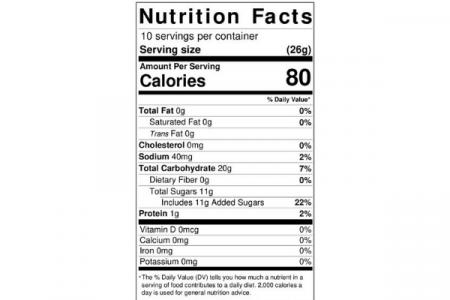Let’s face it; everyone loves chewing sour gummy worms slowly regardless of age. So how can we not think of treating our dogs with sour gummy worms? Can dogs eat them?
You may be wondering about the potential harm of the high sugar content to dogs. And that’s true to some extent.
Well, let’s find out! This article covers all your questions revolving around whether dogs can eat sour gummy worms or not.
Are Sour Gummy Worms Safe For Dog’s Consumption?

No. Eating sour gummy worms is not safe for your adorable pups. Look at the following reasons and see for yourself:
-
Sour gummy worms are high in sugar, leading to a rapid spike in the blood sugar levels of dogs.
-
They contain processed ingredients such as sucrose, corn syrup, and gelatin; which are generally considered unsafe for dogs.
-
Sour gummy worms might also contain citric acid that can cause digestive issues in dogs. Moreover, your dog might feel irritation and CNS depression.
Read this chat on an online forum wherein people discuss their dogs’ reactions to eating sour gummy worms.
What Are The Nutritional Facts Of Sour Gummy Worms?

According to the United States Department of Agriculture (USDA) Food Database, sour gummy worms (of approx 100-grams serving) contain:
-
325 calories
7.5.grams of protein
77.5 grams of carbs
150 mg of Vitamin C
What Are The Side Effects Of Sour Gummy Worms In Dogs?

You are most likely to notice the following side effects in your dog after he has consumed sour gummy worms:
-
Gastrointestinal Issues
As sour gummy worms have high sugar content, they can cause upset tummy and digestive problems in dogs.
Moreover, even the sugar-free sour gummy worms contain artificial sweeteners like stevia, sorbitol, and maltitol. These can cause diarrhea and gastrointestinal upset in dogs.
Following are some of the symptoms of gastrointestinal issues in dogs due to sour gummy worms:
-
Nausea
Vomiting
Lack of appetite
Stool problems
Diarrhea
-
Low Blood Sugar and Liver Damage
Sour gummy worms contain Xylitol, an artificial sweetener that is extremely toxic to dogs. Even small amounts of Xylitol could result in Xylitol poisoning in dogs.
Your dog will most likely show the first symptoms of Xylitol poisoning after 30-60 minutes of eating sour gummy worms.
Following are the symptoms of Xylitol poisoning in dogs due to excessive consumption of it:
-
Vomiting
Weakness
Seizures
Coma
Death (if the dog is not promptly treated)
Warning: Xylitol can lead to hepatic necrosis (severe liver damage) in dogs. This would result in uncontrollable internal bleeding in the dog’s body.
-
THC Toxicity
You might not know this, but some sour gummy worms also contain hemp or THC (tetrahydrocannabinol)! Thus, eating sour gummy worms in excess can lead to marijuana and THC toxicity in dogs.
The following symptoms are visible in dogs after 5 minutes of eating sour gummy worms:
-
Lethargy
Dilated pupils
Vomiting
Unstable posture
Seizures
Tremors
-
Intestinal Obstruction
Other than the risks mentioned above, your dog might even eat the plastic wrapping of sour gummy bears. This is a potential choking hazard that might even result in intestinal blockages in dogs.
Some common symptoms of intestinal blockage in dogs are as follows:
-
Repetitive vomiting
Abdominal pain
Loss of appetite
Difficulty in defecating
Diarrhea
What To Do If Your Dog Eats Sour Gummy Worms?

You must have a four-step approach when your dog consumes sour gummy worms:
-
Observe the Signs
First of all, you must closely observe your dog’s physiological and behavioral reactions. Look for any signs of discomfort or irritation. Notice if your pooch is feeling nausea or suffering from diarrhea. Excessive consumption of sour gummy worms can lead to panting, excessive drooling, collapse, and tremors in dogs.
-
Clear the Surroundings
Secondly, you must clean your dog’s surroundings and get rid of any remaining sour gummy worms and their wrappings. You have to make sure that your furry friend does not try to eat more sour gummy worms.
-
Gather some Information
Along with the signs and symptoms you have observed, you must collect crucial information regarding your dog. It includes his height, weight, age, breed, and past medical history.
-
Contact the Vet
If your dog ate 1-2 sour gummy worms, your vet would most likely recommend you to monitor him at home. However, it would help if you rushed to the vet’s clinic in case of xylitol poisoning and/or intestinal blockage. The vet would then examine and treat your dog accordingly.
FAQs
Q. Can your dog consume Trolli gummy worms?
No. Dogs should not consume Trolli Gummy Worms or any other brand for that matter. Due to the high quantity of corn starch and sugar, Trolli gummy worms might cause obesity and diabetes in dogs.
Q. Can your dog consume sour gummy worms without Xylitol?
Yes, dogs can eat sour gummy worms without Xylitol, but only in moderation. Xylitol-free gummy worms still contain high sugar content that can lead to adverse consequences in your dog’s metabolism. Such a high sugar diet can undoubtedly lead to a gradual decline in your dog’s health in the long run.
Conclusion
While sour gummy worms are a pretty common treat for you and your doggy, they are not the best.
On one hand, the Xylitol-free version of sour gummy worms may contain high amounts of sugar. While on the other hand, the sugar-free version of sour gummy worms may contain high amounts of Xylitol.
Thus, you should keep such harmful sweet foods away from your pooch including sour gummy worms.
It would be best to always stick to standard dog treats.
We feel that the information shared in this article would resolve your doubts. Have you got any doubts, questions, or opinions to share? Please feel free to let us know in the comments!

Dr. Aram Baker has been with Santa Clarita Animal Hospital since 1995 and his special interests include behaviour medicine and dermatology. He graduated from the Cleveland Humanities Magnet Program in Reseda, CA and attended California State University at Northridge where he received a Bachelor’s degree in biology. He went on to pursue his Doctorate in Veterinary Medicine at the University of California at Davis. He also spent time in the zoological medicine department at U.C. Davis during his Junior and Senior years. He is dedicated to caring for all pets big or small, young or old with compassion, patience, kindness, and love.
